Promoting information integrity: combating disinformation, hate speech and threats to public institutions online
The G20 Side Event will emphasize global discussions on promoting information integrity, taking place back to back to NetMundial +10 in São Paulo, and will combine high-level meetings and a one-day event open to a global audience. The event is an initiative of the Digital Economy Working Group.
Dialogue G20 - Video 1
Opening Session | Conference: global and regional initiatives to promote information integrity | Conference: the importance of information integrity to promote fundamental freedoms | Panel - International experiences in market and digital services regulation | Panel - Promoting fundamental freedoms and tackling hate speech and violence online
Dialogue G20 - Video 2
Panel - Information integrity as the foundation of the fight against climate change | Panel - Protecting children and adolescents online and Media Education initiatives
Dialogue G20 - Video 3
Panel - Sustainability of public interest content producers | Panel - Building resilience: protecting elections and public institutions from the political instability of online extremism

About
Brazil is hosting the G20 in 2024, and one of the chosen themes during its "pro tempore" Presidency, within the Digital Economy Working Group (DEWG), is "Information Integrity and Trust in the Digital Environment." The selection of this axis reflects the need to promote a discussion on the social and political impacts of the advancement of digital technologies on information ecosystems.
This G20 Side Event will focus on the current stage of global discussions on conceptualization, as well as possible approaches to promoting information integrity and trust in the digital environment. It will benefit of several multilateral debates taking place currently and in recent months, such as the UNESCO’s Internet for Trust Initiative, the UN Global Digital Compact consultations the UN Code of Conduct on Information Integrity consultations, OECD debates on mis/disinformation, to mention just a few.
This year also marks the 10th anniversary of NetMundial, an event held in Brazil in 2014, which marked a global moment of reflection on internet governance. The proposal to organize the NetMundial +10 event by the Brazilian Internet Steering Committee (CGI.br) on April 29 and 30, is another opportunity to update the topics addressed in the first edition, given the challenging scenario a decade later. The G20 Side-Event will take place back-to-back to NetMundial+10, both in São Paulo.
Brazil has a historical vocation that is situated at the intersection of various regional blocs and multilateral alliances, building bridges and facilitating dialogue that transcends divisions. In this spirit, it is expected that the convergence of these two events will allow the convergence of a series of processes and debates.
In addition, the event is taking place in synergy with the UNESCO's World Press Freedom Day, whose global ceremony will take place in Santiago, Chile, from May 2 to 4, which will also bring together global leaders in communication and related topics, particularly highlighting the theme of information integrity related to climate change, hosting discussions that will include inputs coming from this international seminar.
When:
April 30 and May 1
Where:
Hotel Hyatt, São Paulo, Brasil
Format and structure:
The face-to-face conference will take place over two days. The format includes open panels and discussion groups (invitees-only).
Tuesday, April 30, from 8:30 a.m. to 5:30 p.m.: closed high-level meetings and workshops with engagement groups from the G20, T20, C20 and partners
Wednesday, May 1, from 8:30 a.m. to 6 p.m.: thematic conferences, events open to registrants
Objectives:
To bring together different perspectives to inform ongoing multilateral dialogues on the conceptualization and operationalization of “information integrity”
To provide a space for dialogue and exchange of good practices and gathering of evidence in promoting information integrity in the digital environment, aimed at members of governments, multilateral organizations, civil society, industry, and research community
Public:
“Promoting Information Integrity” will be an open and global event, not restricted to G-20 members.
The expectation is to have meaningful conversations, from a global perspective, for an audience, including representatives from civil society, the private sector, governments from around the world, and international organizations.
Chair:
Minister Paulo Pimenta, Minister-Chief of the Secretariat of Social Communication at the Presidency of the Republic of Brazil
Speakers
Names designated or suggested by the G20 countries
Melissa Fleming
UN Under-Secretary-General for Global Communications
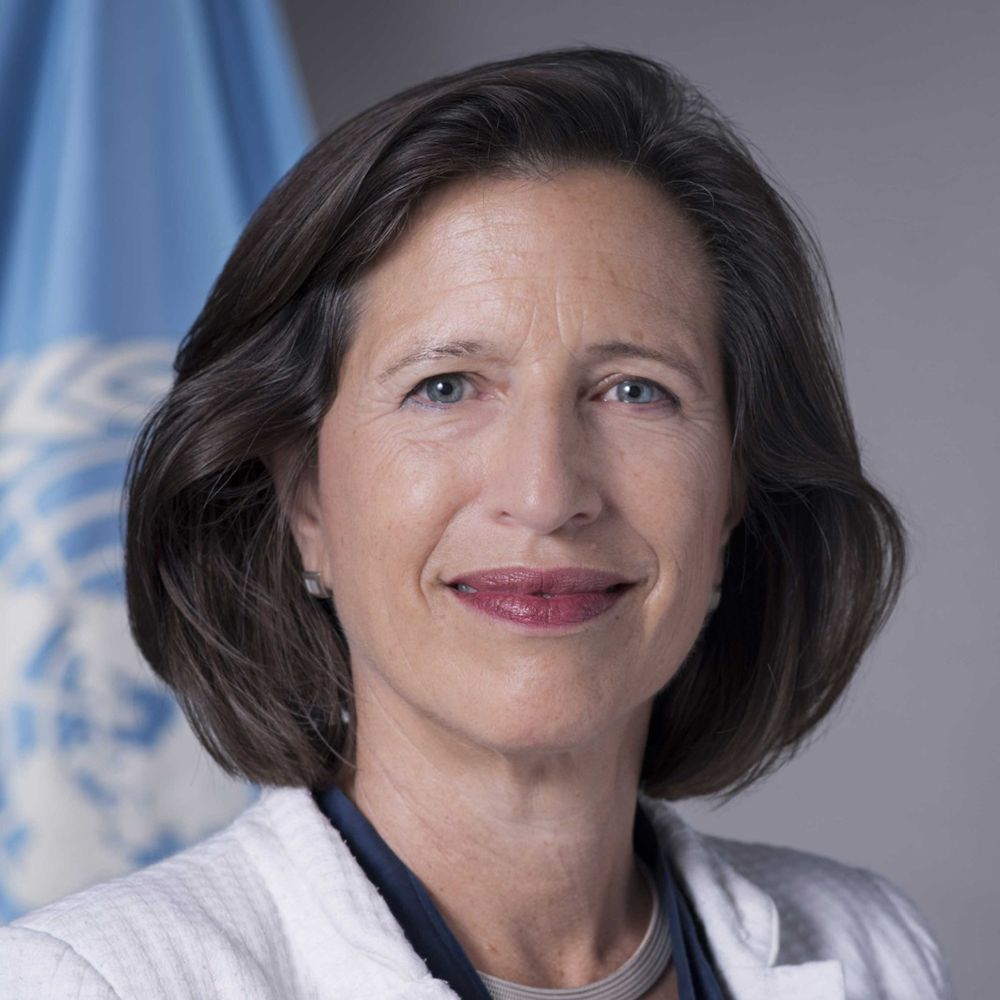
Melissa Fleming is Under-Secretary-General for Global Communications at the United Nations. In this role, she oversees the UN’s strategic communications operations, including its multilingual news and digital media services, public outreach programmes, and campaigns.
Under her leadership, the UN Department of Global Communications is engaging in far-reaching efforts to address misinformation, disinformation, and hate speech. It is also developing a Code of Conduct for Information Integrity on Digital Platforms.
Ms. Fleming is author of “A Hope More Powerful than the Sea” and host of the UN podcast, Awake at Night. She holds an MS in Journalism from Boston University and a BA in German Studies from Oberlin College.
Tawfik Jelassi
UNESCO Assistant Director-General for Communication and Information
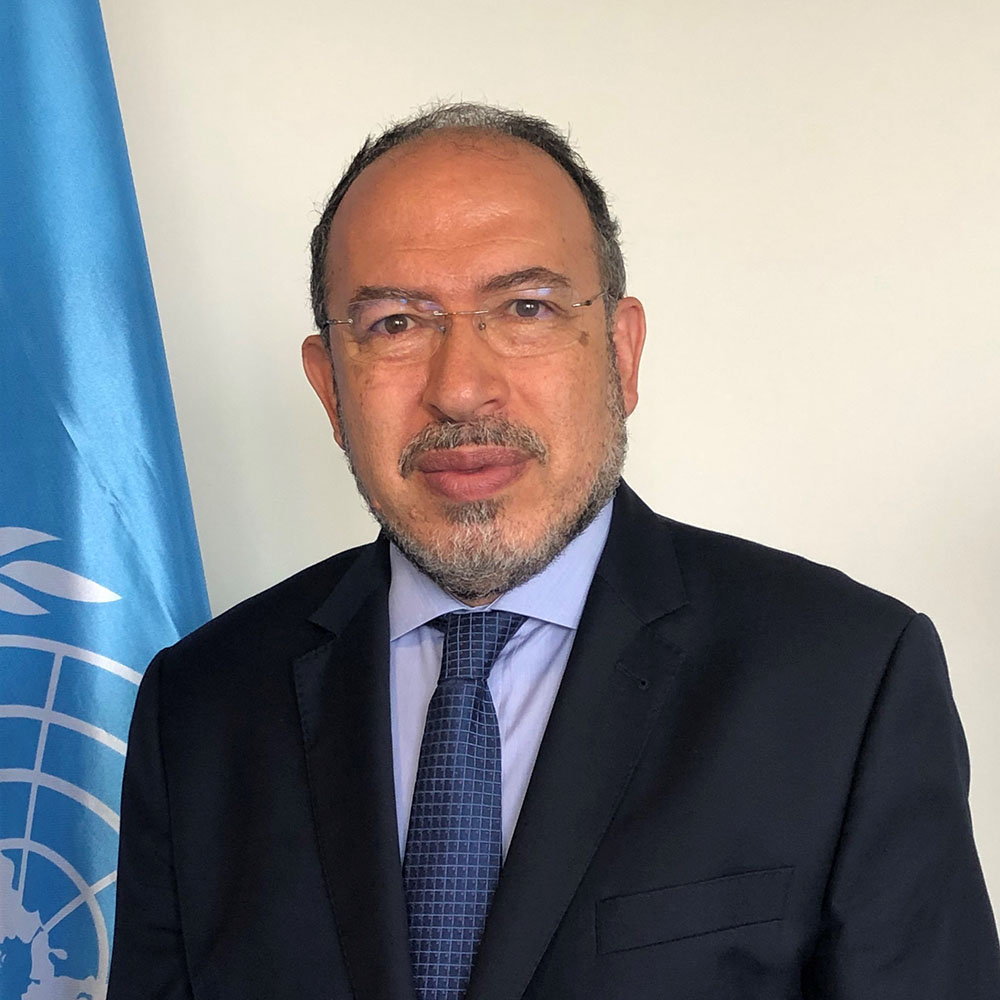
Tawfik Jelassi has been UNESCO's Assistant Director-General for Communication and Information since July 1, 2021. He is responsible for programs related to building inclusive knowledge societies, leading digital transformation, outlining strategies for the role of ICTs in education, and promoting freedom of expression.
He has a doctorate in Information Systems from New York University (USA) and a postgraduate degree from the University of Paris Dauphine (France). He has extensive experience in higher education, scientific research and information and communication technologies. He has held academic, corporate, and government leadership positions in Europe, the USA, and Tunisia.
Maria Ressa
CEO and president of Rappler, Nobel Peace Prize laureate
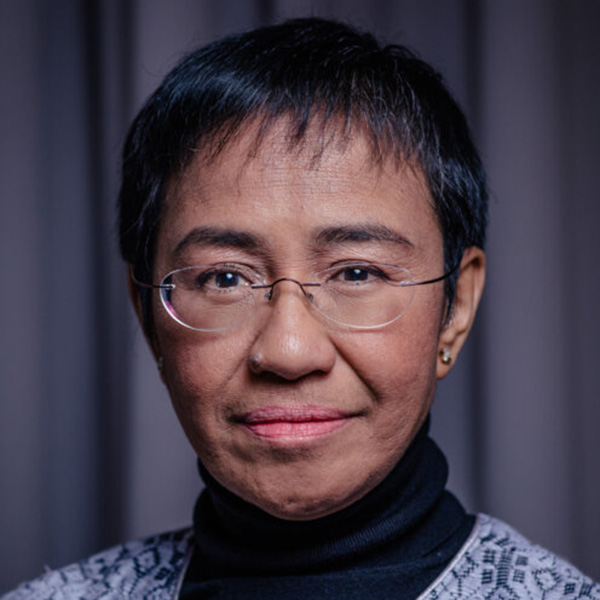
Maria Ressa has been a journalist in Asia for over 37 years. She is the co-founder, CEO, and president of Rappler, the leading digital news site in the fight for press freedom in the Philippines.
In October 2021, she was one of two journalists awarded the Nobel Peace Prize in recognition of her "efforts to safeguard freedom of expression, which is a precondition for democracy and lasting peace.” Maria was named one of Time Magazine's Personalities of the Year 2018, was among the 100 Most Influential People of 2019 and was also named one of Time's Most Influential Women of the Century.
Elsa Pilichowski
Director of Public Governance at the OECD
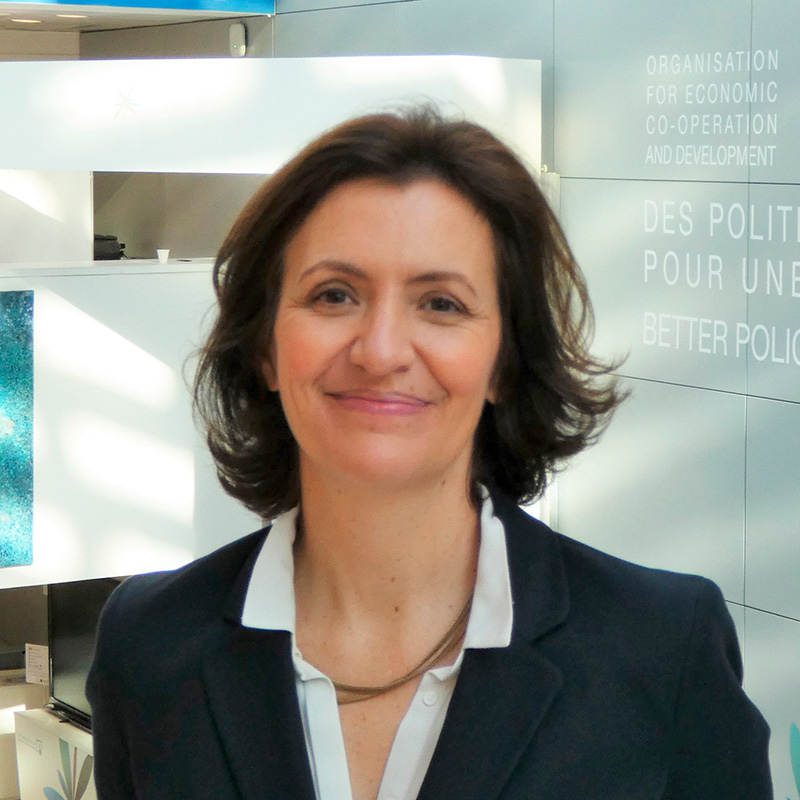
Elsa Pilichowski is Director of the Directorate for Public Governance at the Organization for Economic Cooperation and Development. She has more than 20 years of experience in public governance in OECD and partner countries. She joined the OECD in 2000 in the Public Governance Directorate, where she worked, until 2012.
Pilichowski took up the post of the deputy head of the unit for the Eurasian region for the OECD's Global Relations Secretariat and the Office of the Secretary-General in 2014, where she was an advisor. Before joining the OECD, Elsa Pilichowski held positions at the World Bank.
Adriana Delorenzo
Director of the Brazilian Digital Media Association
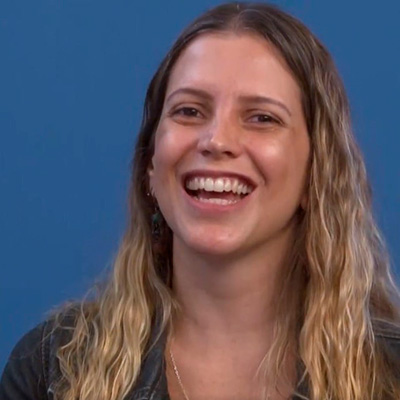
She is Director of the Brazilian Digital Media Association. She has a degree in Journalism from Mackenzie Presbyterian University (2004) and a degree in Literature from the University of São Paulo (2010). She has a postgraduate degree in Environment and Society from the São Paulo Foundation of Sociology and Politics (2009). She has a Master's degree in Communication from the Graduate Program in Humanities and Social Sciences at the Federal University of ABC (UFABC), with research on the Internet, activism and cities.
Angie Holan
Director of the International Fact-Checking Network at the Poynter Institute
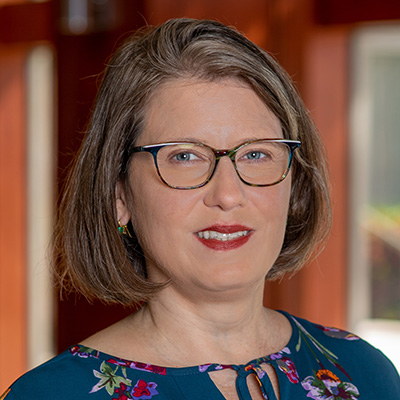
Angie Drobnic Holan is the director of the International Fact-Checking Network at the Poynter Institute, an organization devoted to supporting fact-checking journalism around the world. The network administers the IFCN Code of Principles, a set of best practices for fact-checkers concerning accuracy, methodology, transparency and independence. From 2013 to 2023, she was editor-in-chief of PolitiFact and was a reporter on the Pulitzer Prize-winning team that fact-checked the 2008 U.S. presidential election. She has spoken and taught at fact-checking conferences including the IFCN-hosted GlobalFact conferences in London, Buenos Aires, Cape Town and Seoul. She is based in Washington, D.C.
Anita Gurumurthy
Executive Director and Senior Fellow, IT for Change
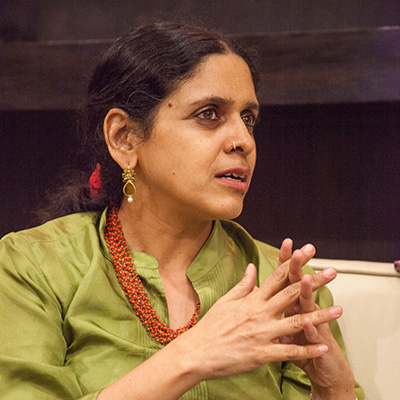
Anita Gurumurthy is a founding member and executive director of IT for Change where she leads research and advocacy on data and AI governance, platform regulation, and feminist frameworks on digital justice. Anita contributes regularly to academic and media spaces. She serves as an expert on various bodies including the United Nations Secretary-General’s 10-Member Group on Technology Facilitation, Council of the Platform Cooperativism Consortium at The New School – New York, and has been on the Paris Peace Forum’s working group on algorithmic governance. Anita is also a Board member of global justice organizations such as the ETC Group, and University centers such as the Tech & Policy Lab at the University of Western Australia, and International Development and Social Change program of Loughborough University.
Anne Marie Engtoft Meldgaard
Denmark’s Tech Ambassador
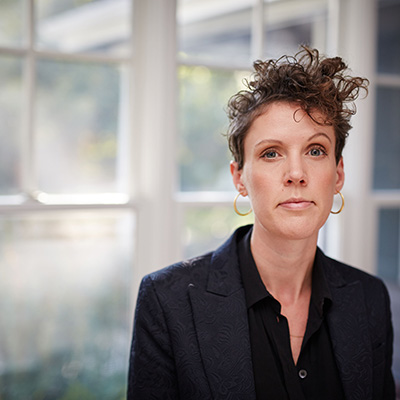
Anne Marie Engtoft Meldgaard is Denmark’s Tech Ambassador with responsibility for representing the Danish Government to the global tech industry and leading Danish efforts in global technology governance. TechPlomacy is a pioneering initiative elevating technology and digitalization to a crosscutting foreign and security policy priority of the Danish government.
Antonia Gawel
Director of Sustainability Partnerships & Engagement at Google
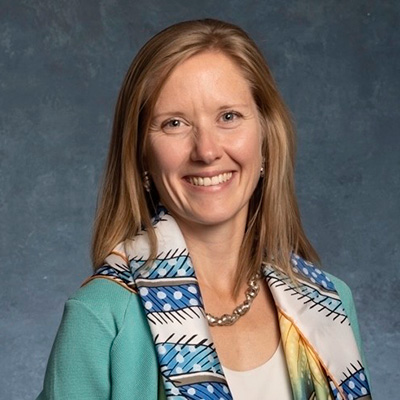
Director of Sustainability Partnerships & Engagement at Google. Prior to joining Climate Action, Antonia worked in Bhutan as an advisor on environment and clean energy programs. She also worked at the International Energy Agency (IEA) where she was responsible for IEA’s work on monitoring and evaluating clean energy policy and deployment progress as input to the Clean Energy Ministerial and G-20 processes.
Antonia was also formerly Deputy Director, Energy and Climate, at the World Business Council for Sustainable Development in Geneva. In 2006, she was selected for the “Young Canadian Leaders for a Sustainable Future” program at the International Institute for Sustainable Development.
Antonia holds a Master’s in Environmental Planning, Policy and Regulation from the London School of Economics and an Hon. BA in Economics from the University of Toronto.
Bander Alsulami
Chief Information Officer (CIO) at the General Authority of Media Regulation (Saudi Arabia)
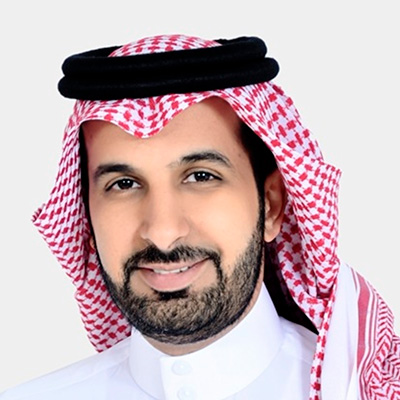
Dr. Bander Alsulami is the Chief Information Officer at the General Authority of Media Regulation, leading digital transformation initiatives within the media sector through the strategic application of emerging technologies and data analytics. He combines this with his role as an Assistant Professor at King Saud University, where he applies his extensive expertise in artificial intelligence to educate and innovate.
Holding a Ph.D. with a specialization in AI and large data analysis from Drexel University, Dr. Bander Alsulami has a proven track record in leveraging AI to enhance information integrity, particularly through the analysis of social media content. His approach focuses on employing advanced data science techniques to foster reliable and secure digital environments, driving business growth and operational improvements across the board. His leadership is pivotal in setting new standards for accuracy and ethical information handling in the digital space.
Camille Grenier
Operations Director of the Forum on Information and Democracy
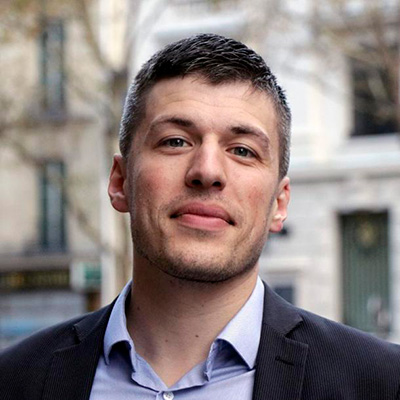
Over the last five years, Camille Grenier has led the establishment and development of the Forum on Information and Democracy, the implementing organization of the International Partnership for Information and Democracy endorsed by 52 countries across the world. In his different positions, Camille has overseen the development and publication of the organization's policy reports covering disinformation, media sustainability, accountability, pluralism and AI. In 2021, he coordinated the prefiguration process of the Observatory on Information and Democracy chaired by Shoshana Zuboff and Angel Gurria. As Operations director of the organization, Camille also plays a key role in the engagement with signatory States of the Partnership for Information and Democracy and the organization of its annual Summits.
Chengetai Masango
Head of the United Nations Secretariat of the Internet Governance Forum (IGF)
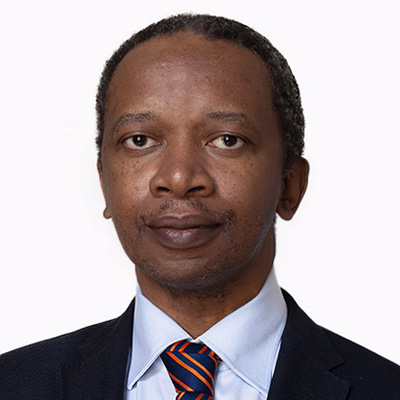
Mr. Chengetai Masango is the head of the United Nations Secretariat of the Internet Governance Forum (IGF). The IGF is one of the major outcomes of the World Summit on the Information Society (WSIS). Its aim is to facilitate public policy discourse on issues related to key elements of Internet governance in order to foster the sustainability, robustness, security, stability and development of the Internet. Mr. Masango holds a master’s degree in International Relations- Global Information Policy and degrees in Information Management and Computer Programming. His PhD research relates to transnational collective action and effective practices of globally distributed multicultural teams.
Eileen Donahoe
Special Envoy and Coordinator for Digital Freedom in the U.S. Department of State’s Bureau of Cyberspace and Digital Policy (CDP)
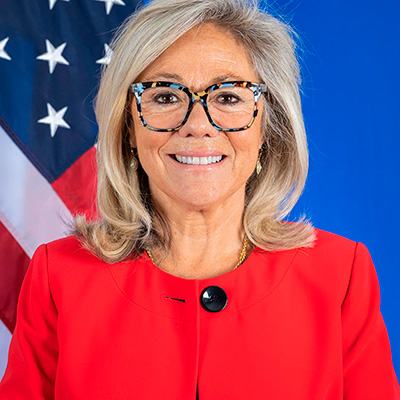
Eileen Donahoe serves as Special Envoy and Coordinator for Digital Freedom in the U.S. Department of State’s Bureau of Cyberspace and Digital Policy (CDP).
Previously, Dr. Donahoe served as the Executive Director of the Global Digital Policy Incubator at Stanford University, a multistakeholder collaboration hub focused on implications of digital technology for democracy and human rights. She served as the first US Ambassador to the United Nations Human Rights Council in Geneva during the Obama Administration.
Dr. Donahoe is a former member of the Board of Directors of the National Endowment for Democracy; the Board of Trustees of the Carnegie Endowment for International Peace; and the Board of Trustees of Dartmouth College. She holds an A.B. from Dartmouth, an M.T.S. from Harvard, a J.D. from Stanford Law School, an M.A. in East Asian Studies from Stanford, and a Ph.D. in Ethics and Social Theory from the GTU in the Cooperative Program with UC Berkeley. She is a member of the Council on Foreign Relations.
Emilio Puccio
Secretary General of the European Parliament Intergroup on Children’s Rights
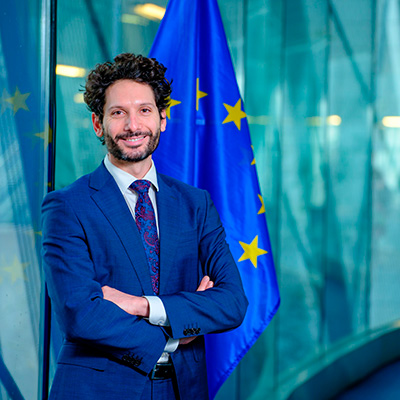
Emilio Puccio serves as Secretary General of the European Parliament Intergroup on Children’s Rights, which he has run since 2015. Emilio sits in the advisory board of the EU Child Participation Platform, as well as the Advisory Group for Child Sexual Violence Research Priority Setting in LMICs set by the Sexual Violence Research Initiative (SVRI), WeProtect Global Alliance & Together for Girls. Emilio is also a member of the Spanish inter-ministerial Expert Group on child safety online set up by the Spanish Prime Minister and the Interparliamentary Taskforce on Human Trafficking, as well as part of the advisory board of the Better Internet for Kids initiative (BIK) - set up by the European Commission. Furthermore, Emilio served as member of the advisory board of INHOPE (2021- 2023), as well as member of the Judging Panel for the 2020 GSMA Global Mobile Awards (GLOMOs) for the category Best Mobile Initiative for Enhancing Children’s Lives.
Emma Leiken
Global Policy Leader for Youth Safety and Wellbeing in TikTok's Trust and Safety team
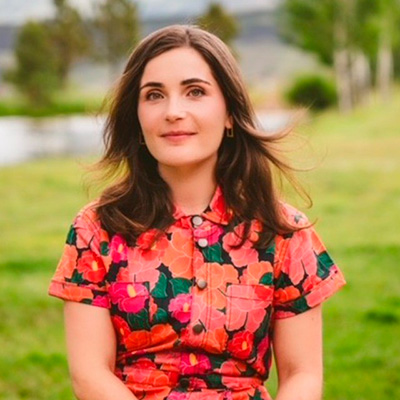
She currently leads the Global Youth Safety and Wellbeing Policy team on TikTok’s Trust and Safety team. Before that, while on Responsible Technology team at Omidyar Network, Emma led a portfolio focused on youth organizing and responsible technology. Before that, she researched the financial challenges faced by new internet users in India, Indonesia, Mexico and Brazil at Google.
She holds a B.A. in religion from Oberlin College and an M.A. in international development with a focus on technology from the London School of Economics.
Ernst Noorman
Ambassador of the Netherlands

Ambassador Ernst Noorman has a long career within the Ministry of Foreign Affairs, as well as within other ministries. Before taking up his new position as Ambassador at Large for Cyber Affairs in September 2023, he has served the past 13 years as ambassador for the Kingdom of the Netherlands in Burkina Faso, Suriname, Afghanistan, and Colombia respectively.
Before that he worked amongst others at the Ministry of Finance in the Euroteam, responsible for the introduction of the euro in the Netherlands, and for the Ministry of Home Affairs and Kingdom Relations, where he was responsible for the financial negotiations
leading to the constitutional changes of the Caribbean part of the Kingdom of the Netherlands. As a junior diplomat he has served in India and Tanzania.
Ambassador Noorman obtained his master’s degree in economics at the University of Amsterdam, the city where he was born and presently is living with his wife.
Francisco Cruz
Executive Director of InternetLab

Executive Director of InternetLab. He is a lawyer with a master's and doctorate from the University of São Paulo Law School (FDUSP). He was a visiting researcher at the Center for the Study of Law and Society, University of California - Berkeley (2013). He was a member of the Electoral Law Commission of the Brazilian Bar Association - São Paulo Section (2019-2020).
He founded and coordinated the Center for Law, Internet and Society at the University of São Paulo (NDIS-USP, 2012-2014, 2016-2019). Francisco is also co-author of the books Surviving on the networks: A Citizen's Guide (Moderna, 2018), Electoral Law in the Digital Age (Letramento, 2019) and The Internet in the dock (IASP, 2017), and author of the book New game, old rules (Letramento, 2020).
Guilherme Canela
Dhief of the section of Freedom of Expression and Safety of Journalists at UNESCO

Guilherme Canela holds the position of chief of the section of Freedom of Expression and Safety of Journalists at UNESCO headquarters in Paris. For 8 years, he held the position of Communication and Information Regional Adviser for Latin America and the Caribbean at UNESCO Montevideo Office.
During those years, he performed as Regional Coordinator of the UNESCO Initiative for the Promotion of Democracy and Freedom of Expression in judicial systems in Latin America. He was also the Secretary of the Regional Committee of the UNESCO Memory of the World Programme for Latin America and the Caribbean, and focal point of the Organization for issues related to the safety of journalists. He has a B.A. in International Relations from the University of Brasília (UNB) and a Master’s Degree on Political Science from the University of São Paulo (USP).
Gustavo Gómez
Executive director of OBSERVACOM (Latin American Observatory of Regulation, Media and Convergence).
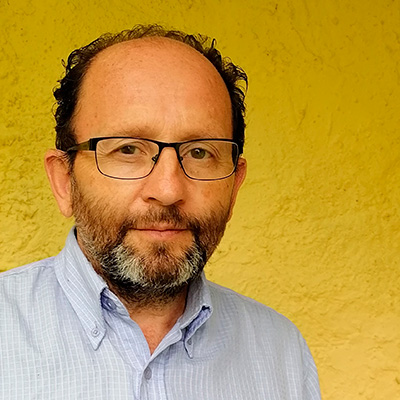
Uruguayan researcher and consultant. International specialist in freedom of expression and media, telecommunications and Internet regulation and public policies.
He is executive director of OBSERVACOM (Latin American Observatory of Regulation, Media and Convergence).
He was national director of Telecommunications (DINATEL) and presidential advisor of Uruguay during the government of José Mujica (2010-2014).
He was a member of the Panel of Experts on the Phenomenon of Deliberate Disinformation in Electoral Context convened by the Special Rapporteur for Freedom of Expression of the IACHR and coordinator of the Clean Disinformation Campaign of the Uruguayan Press Association (APU).
Hannah Balieiro
Executive director of the Mapinguari Institute
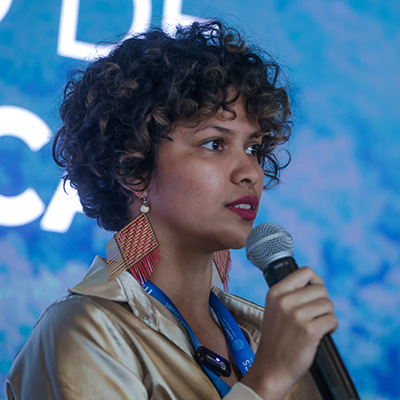
Hannah Balieiro is a biologist who graduated from the Federal University of Amapá and is the executive director of the Mapinguari Institute, an NGO based and run by Amazonians working for conservation and quality of life for the population. She lives on the banks of the Amazon River in Amapá and was born in Belém. She is a member of the management nucleus of the COP30 Committee, a civil society coalition to influence COP30 from the Amazonian territory. She has a scholarship in international advocacy from the Samaúma Initiative, Pour le Brésil and SciencesPO. She has twice been a mentor for Purpose Brasil's IARA program, helping grassroots organizations build their campaigns for climate justice. She has been following the UN climate COPs for three years, following the agendas of food systems and just transition, linking how these themes are linked to the Amazon territory.
Jason Pielemeier
Executive Director of the Global Network Initiative (GNI)

As Executive Director of the Global Network Initiative (GNI), Jason leads a dynamic, multistakeholder, human rights collaboration, building consensus for the advancement of freedom of expression and privacy among technology companies, academics, human rights and press freedom groups, and investors. Jason previously served as Deputy Director and Policy Director at GNI. Prior to joining GNI, Jason was a Special Advisor at the U.S. Department of State, where he led the Internet Freedom, Business, and Human Rights section in the Bureau of Democracy, Human Rights and Labor. In that role, Jason worked with colleagues across the U.S. government, counterparts in other governments, and stakeholders around the world to promote and protect human rights online. Jason is a graduate of Northwestern University and Yale Law School.
Jeanette Hofmann
Professor of ‘Internet Politics’ at the Institute for Media and Communication Studies at Freie Universität Berlin
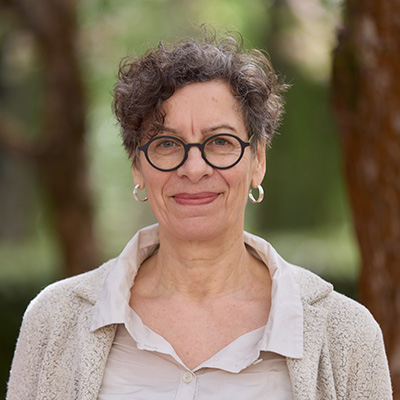
Jeanette Hofmann is a political scientist with a focus on digitalization, democracy and regulation. She is professor of ‘Internet Politics’ at the Institute for Media and Communication Studies at Freie Universität Berlin. She heads a research group on 'Politics of Digitalisation' at the Berlin Social Science Center; she is also co-director of the Alexander von Humboldt Institute for Internet and Society and Principal Investigator of the research group on ‘Technology, Power and Domination’ at the Weizenbaum Institute for the Networked Society. Her current research interest centers on the question of how digital technologies contribute to the structural transformation of democracies.
Jennifer Kaberi
Founder of Mtoto News
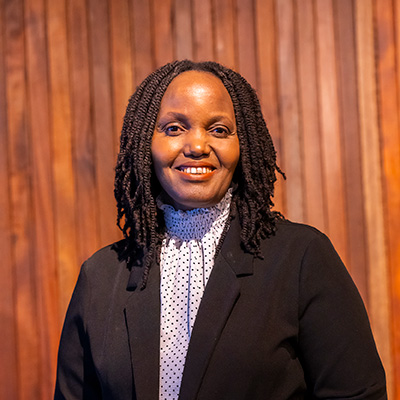
Jennifer Kaberi is a Founder of Mtoto News a digital company that is leveraging on the power of technology to improve the lives of children. She is also a Research Affiliate at the Berkman Center for Internet and Society at Harvard University, investigating how we can reboot social media by creating a digital environment where children can engage, create, and influence in a safe and fun environment. She is also a Child Development specialist with a Masters in Child Development from Daystar University. Jennifer has over 20 years of experience working with children, and a significant amount of developing child-focused systems. Jennifer has supported several governments and regional bodies in developing children's policies as part of the technical committees. Moreover, Jennifer has been trailblazing in using technology as a tool for child participation by creating platforms where children can hold their leaders accountable as well as contribute to National, Regional and global debates.
João Guilherme Bastos do Santos
Director of Technology and Thematic Studies and co-founder of the Democracy in Check Institute (DX)
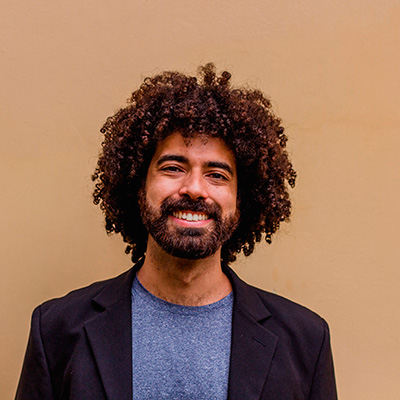
João Guilherme Bastos dos Santos is Director of Technology and Thematic Studies and co-founder of the Democracy in Check Institute (DX), researcher at the National Institute of Science and Technology for Digital Democracy (INCT.DD), member of the Carnegie Endowment's Partnership for Countering Influence Operations Researchers Guild (PCIO), Affiliate at the International Panel on the Information Environment (IPIE). PhD in Communication from the State University of Rio de Janeiro, Brazil, including a doctoral visit supervised by Stephen Coleman at the School of Media and Communication, University of Leeds, UK. He has a post-doctorate at INCT.DD.
Joëlle Rizk
Digital Risks Advisor at the International Committee of the Red Cross
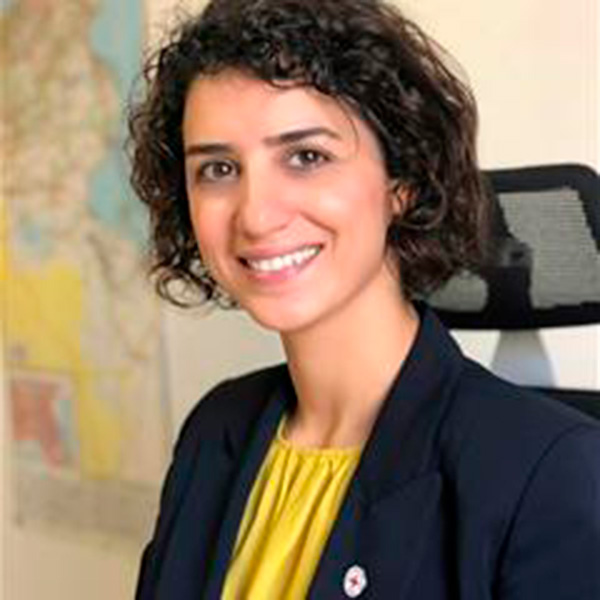
Joëlle Rizk is the Digital Risks Advisor at the International Committee of the Red Cross. In this role, she supports ICRC operations aiming at understanding and addressing risks to civilian populations emanating from the use of technology in armed conflict settings. Joelle joined the ICRC in 2014 and has taken multiple assignments in Afghanistan, Libya, Tunisia, the Sahel region of Africa, Iraq, Senegal and Jordan. Prior to the ICRC her work evolved around Track II diplomacy and Mediation in Afghanistan and Central Asia. She holds an M.A. in Peace and Conflict Studies and an M.A. in International Relations. She has published various research articles including on non-state armed groups and Trafficking in Persons (2020, 2021), and a book on the rise of Islamic militancy in Afghanistan (2010).
Karen Kaiser
SVP, General Counsel, and Chief Compliance Officer of The Associated Press
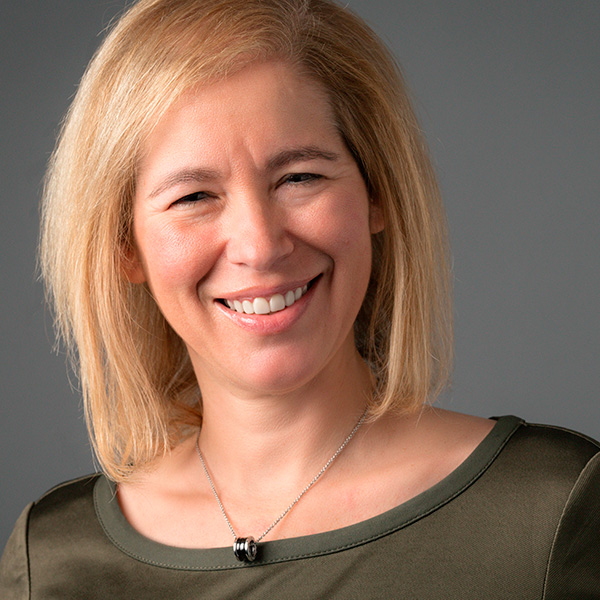
Karen Kaiser has been a leading global freedom of expression advocate for 25 years, championing press freedom, journalist safety, and freedom of expression. Karen currently serves as SVP, General Counsel, and Chief Compliance Officer of The Associated Press. In that capacity, Karen is responsible for overseeing all the legal operations of the company globally, as well as the company’s risk, governance and compliance portfolio, with particular emphasis on threats to press freedoms, journalist safety, disinformation, crisis prevention, and AI governance. In both 2014 and 2022, Karen was instrumental in reforming the U.S. Department of Justice Guidelines on Subpoenas for Members of the Press. Karen is on the Steering Committee of the Reporters Committee for Freedom of the Press, the Publications Officer of the International Bar Association Media Law Committee, and also serves on the Advisory Committee for Lawyers for Reporters. Karen holds a B.A. in Philosophy and Economics from the University of Pennsylvania, and a J.D. from Fordham Law School.
Kristina Wilfore
Director of Innovation and Global Projects at Reset

Kristina Wilfore, Director of Innovation and Global Projects at Reset, is a seasoned international development and elections specialist who has worked in over 30 countries for more inclusive and responsive democratic movements. From Eastern Europe to Sub-Saharan Africa and the Americas she advises governments, international NGOs, philanthropies and civil society on how to create an enabling environment to meaningfully tackle digital threats to democracy. At Reset Kristina spearheads initiatives at the intersection of election integrity, gender, political violence and information resilience to mitigate the harms caused by digital media monopolies. In 2021 she co-founded #ShePersisted, an initiative to ensure that digital harms against women leaders are recognized and addressed as threats to national security and the human rights system. Kristina serves as an advisor to the Global Partnership for Action on Gender-based Online Harassment and Abuse, a 14 country collaboration established to address technology-facilitated gender-based violence as part of a shared global agenda to promote peace, security, and stability.
Latifa Akharbach
President of the High Authority for Audiovisual Communication (HACA)
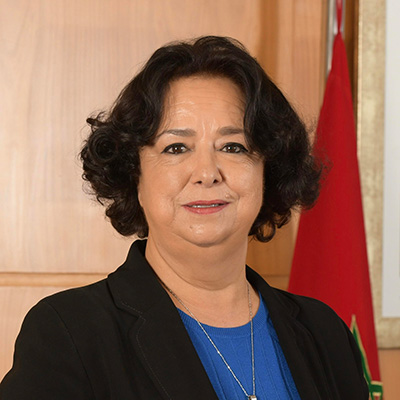
Latifa Akharbach was appointed President of the High Authority for Audiovisual Communication (HACA) on December 3, 2018. HACA is an independent constitutional authority responsible for regulating private and public audiovisual media. She formerly held numerous decision-making positions in Moroccan diplomacy : Secretary of State to the Minister of Foreign Affairs and Cooperation, Ambassador to Tunisia and Ambassador to Bulgaria and Macedonia. She has also served as Director of the Moroccan National Radio and of the High Institute of Information and Communication where she had previously been Professor and researcher for more than twenty years. She is an experienced international consultant in the field of journalism, communication and journalists training. She has published several articles, studies and books on media, communication and women’s rights. She holds a PhD in Information Sciences and Communication.
Marie Santini
Professor at the School of Communication at the Federal University of Rio de Janeiro
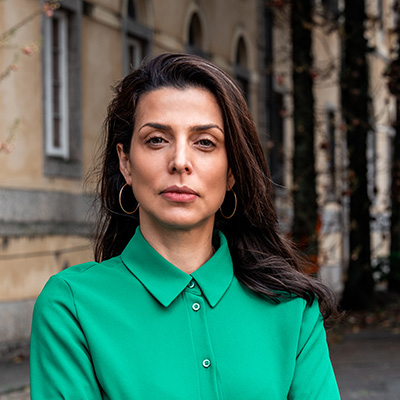
Marie Santini is a professor at the School of Communication at the Federal University of Rio de Janeiro. She is the founder and director of Netlab (UFRJ's Internet and Social Media Studies Laboratory), which articulates academic research, teaching and scientific dissemination activities between the university and civil society on disinformation in Brazil and around the world. Marie is a researcher at Vox-Pol, a European research network on online political extremism. She was one of the five experts on the board of the Nobel Prize Summit 2023 and a leading researcher on disinformation at the University of Cambridge in 2023. She is also a researcher at the National Council for Scientific and Technological Development - CNPq.
Nicolas Robinson
OpenAI's Director of public policy for Latin America
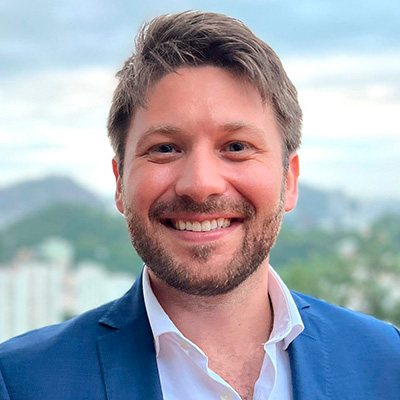
OpenAI's Director of public policy for Latin America. Previously, he worked at Zoom, Meta, the National Democratic Institute (NDI), the Canadian Embassy, and the Rio 2016 Olympic and Paralympic Games. Nicolas has a degree in political science and international relations from the University of Bath (UK) and two master's degrees from Oxford University in public policy and Latin American studies.
Nishant Lalwani
Chief Executive Officer of the International Fund for Public Interest Media
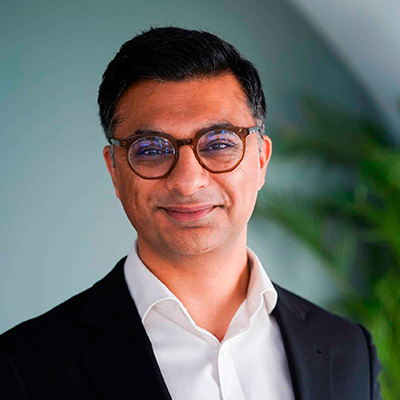
Nishant Lalwani is the Executive Director of the International Fund for Public Interest Media. He co-founded the Fund and led its launch in 2023 with a multilateral coalition of sixteen donors that include some of the world's largest governments, companies and philanthropies. Nishant has twenty years' experience in international development, media development and strategic roles.
Orlando Silva
Federal Deputy for São Paulo
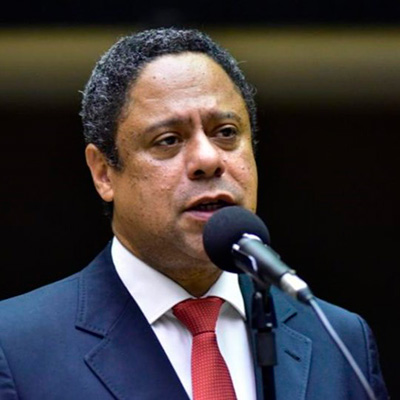
Currently Federal Deputy for São Paulo. He was Minister of Sport in the Lula and Dilma Rousseff governments and was elected a Federal Deputy in 2014. In the Chamber of Deputies, he was deputy leader of President Dilma Rousseff between 2015 and 2016. He was chairman of the Labor, Administration and Public Services Committee in 2017, and leader of the PCdoB in 2018.
He began his career in the student movement in Salvador and was president of the National Union of Students (UNE).
Owen Ripley
Associate Assistant Deputy Minister, Cultural Affairs at the Department of Canadian Heritage
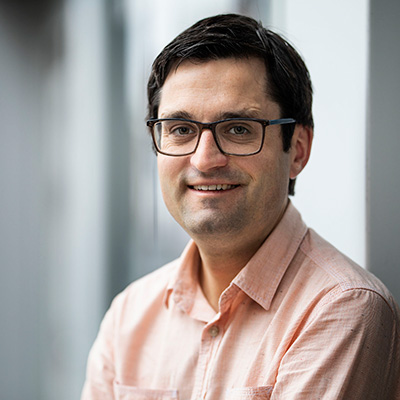
Owen Ripley is Associate Assistant Deputy Minister, Cultural Affairs at the Department of Canadian Heritage and works to advance the Department’s mandate in the area of arts, culture, information and media. Significant achievements over the last couple of years include passage of the Online Streaming Act (Bill C-11), the Online News Act (Bill C-18) and leading the Department's policy work to develop a legislative framework related to online safety.
Prior to this, he was Director General of the Broadcasting, Copyright and Creative Marketplace Branch and Chief of Staff to the Deputy Minister.
Owen has a Common Law and a Civil Law degree as well as a Bachelor of Arts in History and Political Science from McGill University.
Pansy Tlakula
Chairperson of the Information Regulator
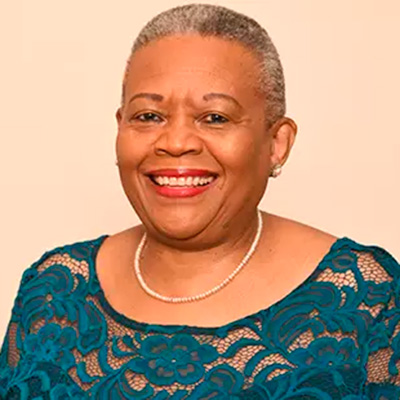
Pansy Tlakula is the Chairperson of the Information Regulator which is responsible for the promotion and protection of the right of access to information and data protection. She is the former Commissioner of the South African Human Rights Commission, former Commissioner and Chairperson of the African Commission on Human and Peoples’ Rights and former Special Rapporteur on Freedom of Expression and Access to Information in Africa. She is currently a member of the United Nations Committee on the Elimination of Racial Discrimination.
Parminder Jeet Singh
Executive Director of IT for Change

Till recently, Parminder was Executive Director of IT for Change, an India based NGO with global footprint, which works on the intersection of digital society and progressive social change. He has been an advisor to the UN Internet Governance Forum, and member to UN committees dealing respectively with new architectures for global Internet policies and improvements in the Internet Governance Forum. In India, it has been a member of government's Committee of Experts on Data Governance Framework. More recently, he was a member of G 20's Think20 Task Force on Digital Public Infrastructures. Parminder is a part of many civil society networks at the global and India level, dealing with the impact of the 'digital' on different social sectors. His current work focuses on governance of platforms, data and AI.
Patrícia Campos Mello
Special reporter for Folha de S.Paulo
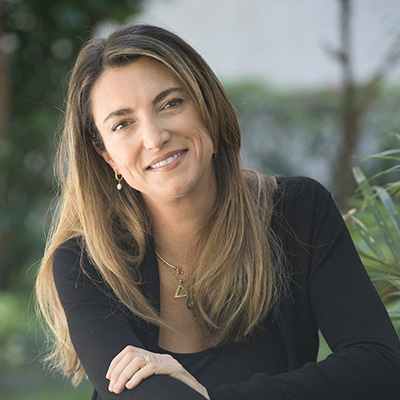
Patrícia Campos Mello is a special reporter for Folha de S.Paulo. She has won the Maria Moors Cabot Award from Columbia University, the International Press Freedom Award from the Committee to Protect Journalists, the Vladimir Herzog Special Award, the King of Spain Journalism Award and the Humanitarian Journalism Award from the International Committee of the Red Cross.
She has a degree in journalism from the University of São Paulo and a master's degree from New York University. She was a research associate at Columbia University in 2021/2022.
She was Washington correspondent for the newspaper Estado de S. Paulo from 2006 to 2010. She has been to Syria, Iraq, Turkey, Libya, Lebanon, Ukraine and Kenya several times reporting on refugees and war. She is the author of the book Honeymoon in Kobane and Hate Machine.
Paula Miraglia
Director of the Journalism and Tech Task force
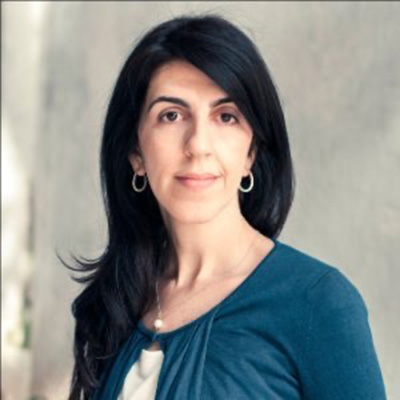
Paula Miraglia is the founder and director of the Journalism and Tech Task force, a global initiative based in Brazil. She is also co-founder, general director and publisher of Gama Revista. She co-founded and ran Nexo newspaper for eight years. Paula holds a PhD in Social Anthropology from the University of São Paulo, where she also completed her master's and undergraduate degrees in Social Sciences. She is a Sulzberger Fellow at Columbia University. She sits on the boards of the Center for News, Technology and Innovation, the International Press Institute, the Peregum Black Reference Institute and the Brazilian Platform for Biodiversity and Ecosystem Services.
Paulo Pimenta
Chief minister of the Social Communication Secretariat of the Presidency of the Republic (Secom)
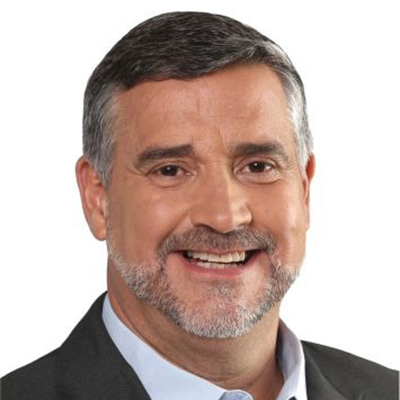
Paulo Pimenta is a journalist and agricultural technician who graduated from the Federal University of Santa Maria (UFSM). He began his career in the Student Movement, in the struggle for the re-democratization of the country. In 1985, Pimenta became president of the Central Student Directory (DCE) at UFSM and, the following year, he was vice-president of the Rio Grande do Sul State Student Union (UEE).
He was re-elected in 2006, 2010 and 2014. In President Dilma Rousseff's government, between 2012 and 2013, he was president of the Joint Budget Committee, the most important in the National Congress.
In the Federal Chamber, Mr. Pimenta was also president of the Parliamentary Commission of Inquiry (CPI) on Arms Trafficking; rapporteur of the CPI on Urban Violence in Brazil; and president of the Commission on Participatory Legislation. At this historic moment, he was appointed Chief minister of the Social Communication Secretariat of the Presidency of the Republic (Secom).
Pearse O’Donohue
Director for the Future Networks Directorate of DG CONNECT at the European Commission
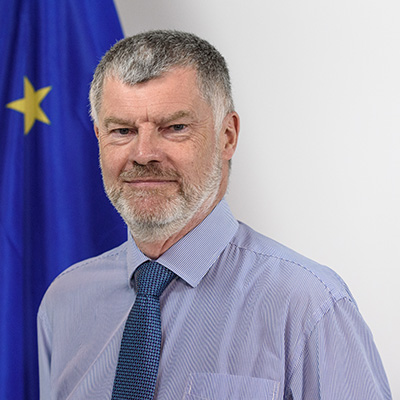
Pearse O’Donohue is the Director for the Future Networks Directorate of DG CONNECT at the European Commission, dealing with policy development, research funding and innovation as regards 5G networks, 6G research, IoT, cloud and edge computing as well as new and innovative approaches towards service platforms and next generation Internet.
Until November 2014, Pearse was Deputy Head of Cabinet of Vice-President Neelie Kroes, previous European Commissioner for the Digital Agenda. Prior to that, he had responsibility for Radio Spectrum Policy and for the regulatory framework on electronic communications.
(Prior to joining the European Commission, Pearse held posts in the Irish Department of Foreign Affairs, the Permanent Representation of Ireland to the EU in Brussels, and the Irish Business & Employers’ Confederation.)
Raül Echeberría
Executive Director of the Latin America and Caribbean Internet Addresses Registry (LACNIC)
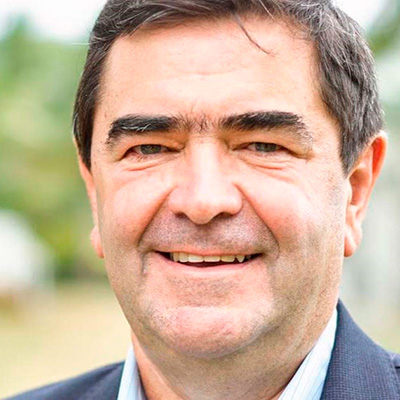
Mr. Echeberría has been Executive Director of the Latin America and Caribbean Internet Addresses Registry (LACNIC) since 2002. He was a past Chair of the Internet Society Board and currently serves as a member of the Board of Trustees. As Vice President of Global Engagement, Mr. Echeberría serves on the Internet Society Executive Team. He leads a global strategy to integrate the Internet Society’s regional initiatives, strategic development efforts, and Chapter activities throughout the world. The Internet Society has Regional Bureaus in Africa, Asia, Europe, Latin America and Caribbean, and North America, and plans for the Middle East. There are more than 100 Chapters associated with the Internet Society, with more than 60,000 members dedicated to a global, open, resilient Internet. Mr. Echeberría will work across the Internet Society’s policy, technical, and outreach organizations to ensure a seamless strategy to meet the priorities of the organization.
Roberta Eugênio
Executive Secretary of the Ministry of Racial Equality
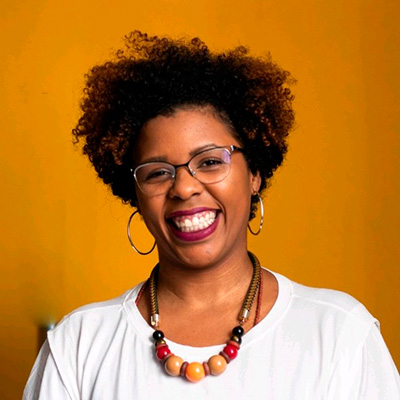
Roberta Eugênio is the Executive Secretary of the Ministry of Racial Equality. She holds a Master's degree in Law from the Federal University of Rio de Janeiro (UFRJ) and was previously a member of the board of the Alziras Institute. She is a coordinator of the postgraduate course in Ethnic-Racial Relations and Gender at the State University of Rio de Janeiro. She was a parliamentary legal adviser for four years, at municipal and state level. She has worked as a lawyer for civil society organizations such as the Institute for Development and Human Rights and Redes da Maré. She is member of the political council of the organization Mulheres Negras Decidem.
Roxana Morduchowicz
Senior Consultant to UNESCO
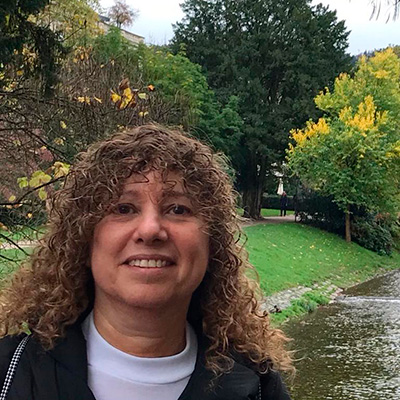
Roxana Morduchowicz is PhD in Communication from the University of Paris She is a senior Consultant to UNESCO Latin America for the program Digital Citizenship as Public Policy in education in Latin America. Morduchowicz worked for Ministries of Education in Latin America, Eastern Europe, Africa and Asia on the use of technologies and education. She was invited professor at the University of Paris and at the University of Poitiers (France) and at Stanford University (United States). She was also invited as a speaker at the Digital Inclusion Congress, organized by the Massachusetts Institute of Technology (MIT), Boston. She is the author of numerous books, the latest one is “Artificial Intelligence: Do we need a new education?” (2023). Morduchowicz was a speaker at International Congresses in Latin America, Europe and Asia.
Silvio Almeida
Minister of Human Rights and Citizenship in Brasil
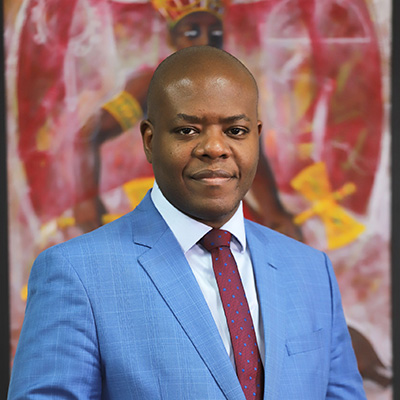
Silvio Almeida is a lawyer, professor and writer who currently holds the position of Minister of Human Rights and Citizenship in Brazil. He holds a doctorate in law from the department of philosophy and general theory of law at the University of São Paulo, with post-doctoral research in law and economics. He is a professor at the law faculty of Mackenzie Presbyterian University, and he is also a professor at the business and law schools of the Getúlio Vargas Foundation. In 2020, he was a visiting professor at the Center for Latin American and Caribbean Studies at Duke University (USA), and in 2022 he was a professor at the Institute of Latin American Studies at Columbia University in New York City (USA). Silvio stood out for his work at the head of the Luiz Gama Institute, a civil society organization that aims to include minorities and promote anti-racist education. In recent years he has given national and international lectures on topics related to law, philosophy, political economy, human rights and race relations.
Sonia Guajajara
Brazil's Minister of Indigenous Peoples
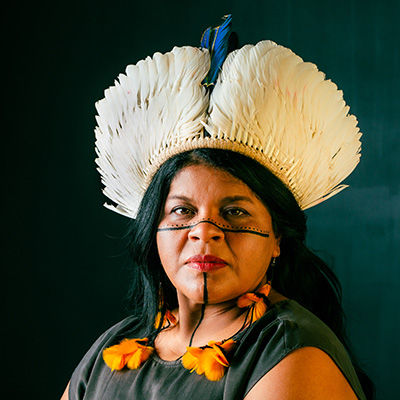
The Brasil's Minister of Indigenous Peoples, Sonia Guajajara, has a postgraduate degree in Special Education and a BA in Literature. She stands out for her historic struggle for the rights of indigenous peoples and the environment.
She has international recognition for her defense of the rights of indigenous peoples, their territories and socio-environmental causes, and was voted one of the 100 most influential people of 2022 by TIME magazine. She has worked in various indigenous organizations, such as the Coordination of Organizations and Articulations of the Indigenous Peoples of Maranhão (Coapima) and the Coordination of Indigenous Organizations of the Brazilian Amazon (COIAB). She was executive coordinator of the Articulation of Indigenous Peoples of Brazil (APIB).
Tanya Notley
Associate Professor in the School of Humanities and Communication Arts and a member of the Institute for Culture and Society at Western Sydney University
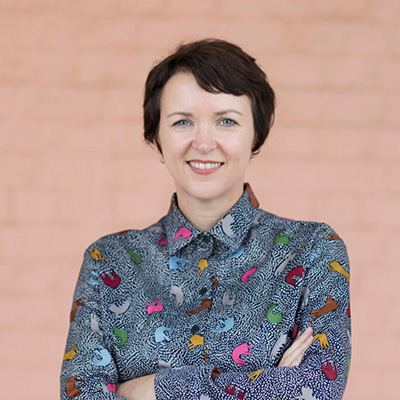
Dr. Tanya Notley is Associate Professor in the School of Humanities and Communication Arts and a member of the Institute for Culture and Society at Western Sydney University where she leads the Platform for Civic Media Literacy. She is internationally recognised in the field of engaged, practice-based media research in areas of digital inclusion, media literacy, and human rights media. Tanya has worked extensively with a range of organisations to use media to address inequalities. She has led 10 media literacy research projects since 2017 including two longitudinal national media literacy surveys (one for children and another for adults). She currently leads a national adult media literacy project that collaborates with national public cultural institutions to develop evidence-based interventions. Tanya is a founding member of Australian Media Literacy Alliance and served as Co-Chair 2020-23.
Wijayanto
Associate Professor specializing in Digital Politics and Democracy within the Department of Politics and Government at Universitas Diponegoro, Indonesia
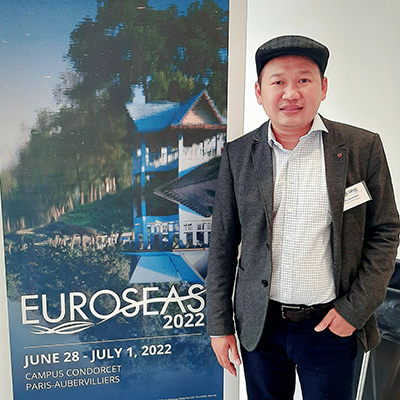
Dr. Wijayanto is an Associate Professor specializing in Digital Politics and Democracy within the Department of Politics and Government at Universitas Diponegoro, Indonesia. Concurrently, he serves as the Director of the Centre for Media and Democracy at LP3ES. Over the past half-decade, he has contributed significantly to the discourse on Indonesian democracy through a comprehensive book series published by LP3ES. His scholarly work extends to various esteemed journals, including Contemporary Southeast Asia, the International Journal of Press/Politics, and Media Asia. His research focuses prominently on the intersection of digital activism, state repression, cyber terrorism, cyber troops, hate speech, gendered disinformation, media freedom, and the broader dynamics shaping digital democracy in Southeast Asia. His expertise underscores a deep commitment to understanding and analyzing the evolving landscape of digital politics within the region. For inquiries and correspondence, he can be contacted via email at wijayanto@live.undip.ac.id.
Yunfeng Li
Deputy Director-General of Bureau of Internet Governance, the Cyberspace Administration of China
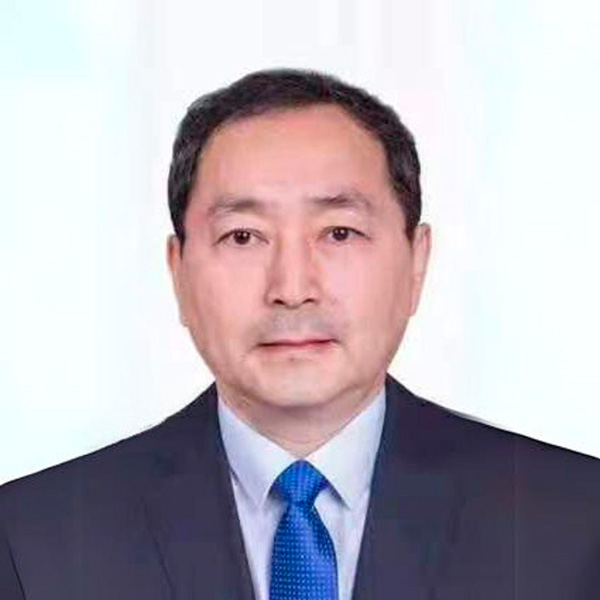
Mr. Li Yunfeng, Deputy Director-General of Bureau of Internet Governance, the Cyberspace Administration of China, mainly responsible for cyberspace governance and other work.
Laudemar Aguiar
Ambassador and Secretary for Trade Promotion, Science, Technology, Innovation and Culture at Brazilian Ministry of Foreign Affairs (Itamaraty)
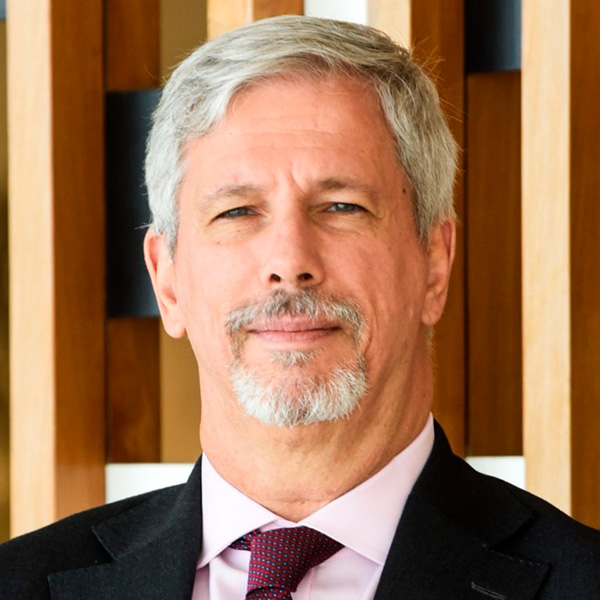
Ambassador and Secretary for Trade Promotion, Science, Technology, Innovation and Culture at Brazilian Ministry of Foreign Affairs (Itamaraty). He has served in various embassies, including Moscow and Paris. He has worked in different areas in the Ministry of Foreign Affairs and in the organization of the Logistics Working Group of the First Latin American and Caribbean-European Union Summit (1999) ; he was National Secretary for the Organization of the United Nations Conference on Sustainable Development (Rio+20), the largest conference ever held by the UN System. He was International Relations Coordinator for Rio de Janeiro City Hall.
Brunna Rosa
Secretary of Strategy and Networks of the Secretariat of Social Communication of the Presidency of the Republic
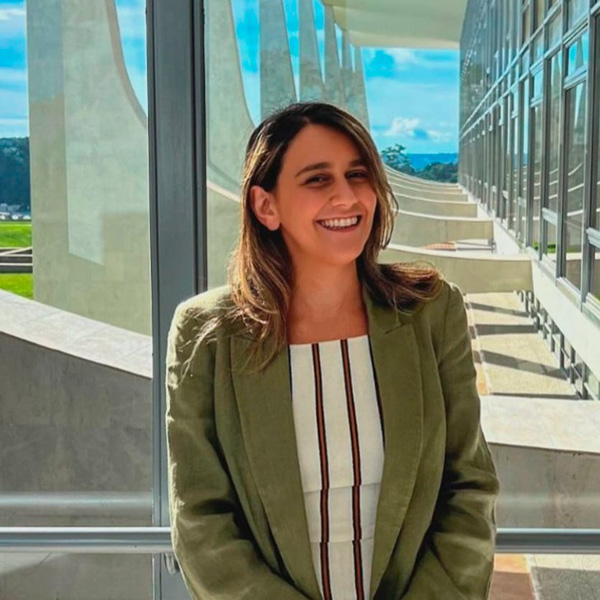
Brunna Rosa is a social scientist and creative technologist. She has been working for two decades with technology, digital media, popular communication and mobilization. She has coordinated projects in digital environments in Brazil and abroad and is currently Secretary of Strategy and Networks of the Secretariat of Social Communication of the Presidency of the Republic.
Nell McCarthy
Meta’s Vice President, Trust & Safety

Nell McCarthy is Meta’s Vice President, Trust & Safety, where she leads a team of experts that guide the company’s strategy on issues related to Safety, Security, Dangerous Organizations, and Human Rights. At Meta, she previously led the teams responsible for the development and implementation of the policies governing what content is prohibited on Meta platforms. She has worked in policy and law for over 20 years and served in multiple policy and legal roles in President Obama’s White House and at the U.S. Department of Justice, with a focus on criminal justice and victims’ rights. Prior to joining the federal government, Nell worked at the law firm of Covington & Burling in Washington, D.C.
Nell is a graduate of the University of Pennsylvania Law School and earned her B.A. from Northwestern University. She lives in San Francisco, California.
Alexandra Martins
Leader of the United Nations Office on Drugs and Crime (UNODC)’s End Violence Against Children Team

Alexandra Martins is the Leader of the United Nations Office on Drugs and Crime (UNODC)’s End Violence Against Children Team. In her role, she heads the Global Programme to End Violence against Children, leads the development of international laws, policies, and the provision of technical assistance to countries across the globe with a focus on those contexts in which children are exposed to increased risks, including the cyberspace.
Martins has amassed over 25 years of experience in the fields of criminal law and child rights. She worked as a lawyer in Brazil and with civil society organizations before joining UNODC in 2005. She holds a Ph.D. in Criminal Law from the University of Florence, and a Law Degree from the University of Sao Paulo.
Program
TUESDAY, APRIL 30
Meetings restricted to invited guests
8:30 - 09:00
Registrations
9:00 – 10:20
Workshop with engagement groups - Room Vanguarda II/III (2nd floor)
10:20 – 10:40
Coffee-break
10:40 – 12:00
Workshop with engagement groups - Room Vanguarda II/III (2nd floor)
14:00 – 15:30
Workshop with Partners from the Global South - Room Vanguarda II/III (2nd floor)
15:30 – 16:00
Coffee-break
16:00 - 18:00
High-level meeting with international organizations - Room Vanguarda II/III (2nd floor)
WEDNESDAY, MAY 1
08:00 - 09:00
Registrations and welcome coffee
09:00 - 10:00
Opening Session - Grand Ballroom (1st floor)
Paulo Pimenta, Minister of Social Communication of the Presidency (Brazil)
Melissa Fleming, Under-Secretary-General for Global Communications (UN)
Tawfik Jelassi, Deputy Director-General for Communication and Information (UNESCO)
Laudemar Aguiar, Secretary of Trade Promotion, Science, Technology, Innovation and Culture of the Ministry of Foreign Affairs (Brazil)
10:00 to 12:00
Conference: global and regional initiatives to promote information integrity - Grand Ballroom (1st floor)
Camille Grenier, Operations director, Forum Information and Democracy
Elsa Pilichowski, Director of Public Governance (OECD)
Chengetai Masango, Head (Secretariat of the Internet Governance Forum)
Pansy Tlakula, Chairperson Information Regulator (South Africa)
Gustavo Gomez, Director (Observatorio Latinoamericano de Regulación)
Ernst Noorman, Ambassador at Large for Cyber Policies (Netherlands)
Parminder Jeet Singh, Digital society researcher (India)
Moderator: Guilherme Canela, Head of the Area of Freedom of Expression and Safety of Journalists (UNESCO)
14:00 to 14:30
Conference: the importance of information integrity to promote fundamental freedoms - Grand Ballroom (1st floor)
Maria Ressa, Nobel Peace Prize Winner (Philippines)
Moderator: Patricia Campos Mello, journalist (Brazil)
14h45 to 18h
Thematic panels
14:45 - 16:15 - First session
Panel - Information integrity as the foundation of the fight against climate change - Room Vanguarda II/III (2nd floor)
Angie Holan, Director (International Fact-Cheking Network)
Marie Santini, Federal University of Rio de Janeiro (Brazil)
Antonia Gawel, Global Director, Sustainability and Partnerships, Google
João Guilherme Bastos dos Santos, Director, Democracia em Xeque (Brazil)
Sonia Guajajara, Minister of Indigenous Peoples (Brazil)
Moderator: Hannah Balieiro, Executive Director (Instituto Mapinguari, Brazil)
Panel - Sustainability of public interest content producers - Room Vanguarda I (2nd floor)
Karen Kaiser, General Counsel (The Associated Press)
Bander Alsulami, Chief Information Officer, General Authority of Media Regulations (Saudi Arabia)
Thomas Owen Ripley, Associate Assistant Deputy Minister Cultural Affairs (Canada)
Nishant Lalwani, CEO (International Fund for Public Interest Media)
Paula Miraglia, Founder and General Director of Journalism and Tech Task Force (Brazil)
Moderator: Adriana Delorenzo, Director (Associação Brasileira de Mídia Digital, Brazil)
Panel - International experiences in market and digital services regulation - Grand Ballroom (1st floor)
Latifa Akharbach, President of the High Authority for Audiovisual Communication (Morocco)
Francisco Brito Cruz, InternetLab (Brazil)
Pearse O’Donohue, Director Future Networks DGConnect (European Union)
Raúl Echeberría, Executive Director (Asociación Latinoamericana de Internet)
Nicolas Robinson, Latin America Policy Lead (OpenAI)
Moderator: Orlando Silva, Congressman (Brazil)
16:15 - 16:30
Coffee Break
16:30 – 18:00 - Second session
Panel - Building resilience: protecting elections and public institutions from the political instability of online extremism - Room Vanguarda I (2nd floor)
Jason Pielemeier, Executive Director (Global Network Initiative)
Joelle Rizk, Digital Risk Advisor (International Committee of the Red Cross)
Eileen Donahoe, Special Envoy and Coordinator for Digital Freedom (USA)
Anne Marie Engtoft Meldgaard, Tech Ambassador (Denmark)
Marcelo Eugenio Feitosa Almeida, Solicitor-General (Brazil)
Moderator: Samara Castro, Director of Promotion of Freedom of Expression at the Secretariat of Social Communication of the Presidency of the Republic (Brazil)
Panel - Promoting fundamental freedoms and tackling hate speech and violence online - Grand Ballroom (1st floor)
Silvio Almeida, Minister of Human Rights and Citizenship (Brazil)
Wijayanto, Universitas Diponegoro (Indonesia)
Anita Gurumurthy, Executive Director and Senior Fellow, IT for Change (India)
Nell McCarthy, VP Content policy development (Meta)
Kristina Wilfore, founder of She Persisted (United States)
Yunfeng Li, Deputy Director-General of Bureau of Internet Governance, the Cyberspace Administration of China
Moderator: Roberta Eugênio, Executive Secretary of the Ministry of Racial Equality (Brazil)
Panel - Protecting children and adolescents online and Media Education initiatives - Room Vanguarda II/III (2nd floor)
Tanya Notley, Australian Media Literacy Alliance (Australia)
Jennifer Kaberi, CEO of MToto News (Kenya)
Roxana Morduchowicz, Senior Consultant for Digital Citizenship (UNESCO)
Emilio Puccio, Secretary General of the Intergroup on Children’s Rights (European Union)
Emma Leiken, Global Head of Youth Safety and Wellbeing Policy (TikTok)
Moderator: Brunna Rosa Alfaia, Secretary of Strategy and Networks at the Secretariat of Social Communication of the Presidency of the Republic (Brazil)
18:00
Closing remarks
Knowledge and Cooperation Partner
Support

Realization

